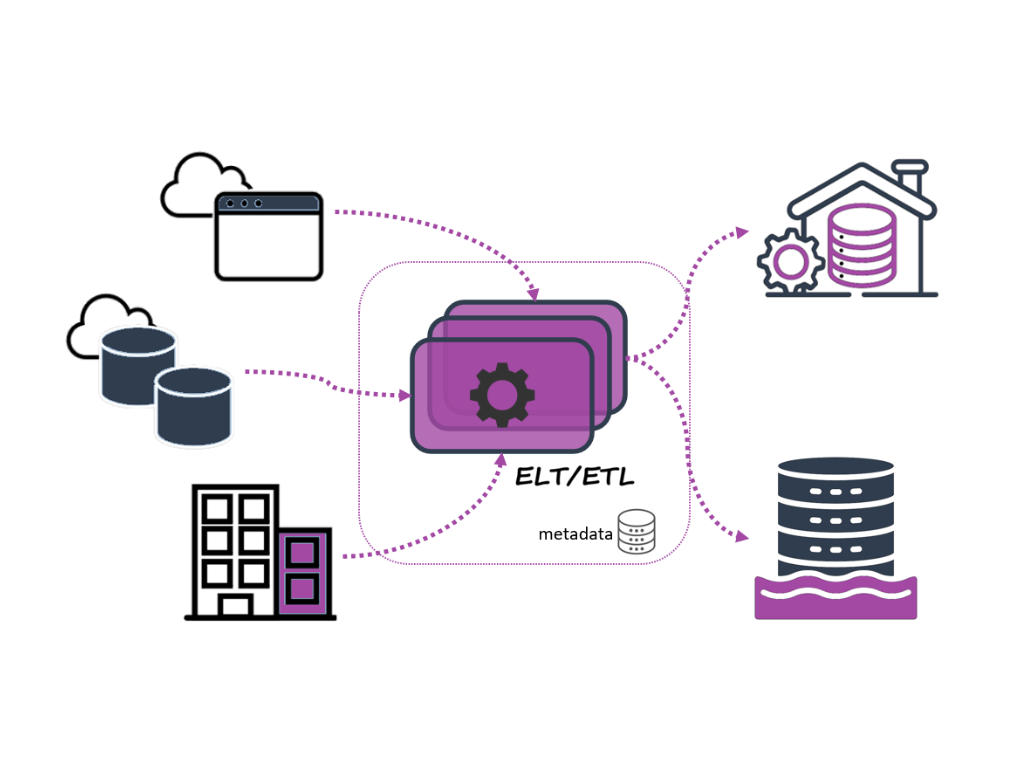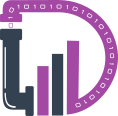In the vast landscape of data management, the ETL (Extract, Transform, Load) process stands as a cornerstone, ensuring data flows seamlessly from source to destination. Traditionally, ETL frameworks relied heavily on hard-coded rules and manual intervention, leading to inefficiencies, errors, and high maintenance costs. However, with the advent of metadata-driven ETL frameworks, a new era of data integration has emerged, promising efficiency, flexibility, and scalability like never before.
Unleashing the Power of Metadata-Driven ETL Frameworks

What is a Metadata-Driven ETL Framework?
At its core, a metadata-driven ETL framework leverages metadata – data about data – to drive the ETL process. Instead of relying on static rules, the framework dynamically adapts to changes in data structures, formats, and sources, reducing the need for manual intervention. By abstracting the ETL logic from the data pipelines, metadata-driven frameworks enable greater agility, allowing organizations to quickly respond to evolving business requirements.
The Components of a Metadata-Driven ETL Framework
- Metadata Repository: Central to the framework is a metadata repository, a catalog that stores information about the data sources, transformations, and mappings. This repository serves as the single source of truth for the ETL process, ensuring consistency and accuracy across pipelines.
- Metadata Extractor: The metadata extractor is responsible for scanning and ingesting metadata from various sources, such as databases, files, and applications. This process involves identifying data structures, formats, and dependencies, which are then stored in the metadata repository.
- Metadata Manager: The metadata manager acts as the brain of the framework, orchestrating the ETL process based on the information stored in the repository. It dynamically generates ETL jobs, mappings, and transformations, adapting to changes in metadata and business requirements.
- Execution Engine: The execution engine is responsible for executing the ETL jobs generated by the metadata manager. It interacts with the data sources and destinations, applying the transformations and loading the data according to the metadata-driven logic.
Benefits of a Metadata-Driven ETL Framework
- Agility: By decoupling the ETL logic from the data pipelines, organizations can quickly adapt to changes in data sources, formats, and structures, reducing time-to-market for new initiatives.
- Accuracy: The reliance on metadata ensures consistency and accuracy in the ETL process, reducing the risk of errors and data inconsistencies.
- Scalability: The reliance on metadata ensures consistency and accuracy in the ETL process, reducing the risk of errors and data inconsistencies.
- Cost-Effectiveness: The reliance on metadata ensures consistency and accuracy in the ETL process, reducing the risk of errors and data inconsistencies.
Real-World Applications
- Data Warehousing: Metadata-driven ETL frameworks are ideal for data warehousing, where data from disparate sources needs to be integrated and transformed into a unified format.
- Business Intelligence: In the realm of business intelligence, these frameworks enable organizations to extract valuable insights from their data, driving informed decision-making.
- Data Migration: During data migration projects, metadata-driven ETL frameworks simplify the process of moving data between systems, ensuring data integrity and consistency.
In conclusion, metadata-driven ETL frameworks represent a paradigm shift in data integration, offering unprecedented agility, scalability, and cost-effectiveness. By harnessing the power of metadata, organizations can unlock the full potential of their data, driving innovation and competitive advantage in today's data-driven world.
Are you ready to unlock the full potential of your data infrastrucutre?
At DATA LEAGUE, we specialize in helping organizations harness the power of metadata to streamline their ETL processes and drive business growth. Our team of experts has extensive experience in designing and implementing metadata-driven ETL frameworks tailored to your unique business needs. Whether you're looking to enhance agility, improve data accuracy, or reduce operational costs, DATA LEAGUE is here to help. Contact us today to learn more about how we can assist you in implementing a metadata-driven ETL framework and revolutionize the way you manage and integrate your data. Let's embark on this journey together towards a more efficient, scalable, and data-driven future.
